#IndustryNews
Whoops: Some Seattle-Area Mazdas Are Stuck Listening to NPR
There’s a gaggle of Mazda owners in Seattle, Washington, that have reportedly been stuck listening to National Public Radio (NPR) over the last few weeks. The manufacturer has addressed the problem, saying the local affiliate had broadcast images files with no extension causing an issue on some 2014-2017 Mazda vehicles with older HD radio software. This effectively bricked the infotainment system on some vehicles, locking them into listening to NPR and out of literally everything else.
Industry Braces for Increased Volumes, Lower-Margin Vehicles
It’s a little early in the year to say anything definitive about 2022 vehicle volumes, however, the automotive industry has been signaling that production numbers should begin to rise in the coming months. While that sentence should be cause for a sigh of relief, there are parts of the industry that might not feel as good about it as you probably do.
With supply chain problems having drastically limited vehicle production during the pandemic, many dealers opted to price their goods well above anything that could be considered normal. This worked out poorly for many of the smaller outfits as larger retailers enjoyed record-breaking profits in 2021. Some manufacturers also benefited financially, as the chip shortage allowed them to prioritize their highest-margin products. Unfortunately for them, 2022 is likely to bring affordable vehicles back into play and gradually pull pricing closer to something approaching normality.
Stellantis Makes Decision on Vaccine, Truckers Head to Ottawa
Following the U.S. Supreme Court’s decision to block proposed OSHA regulations backed by the Biden administration, it was assumed that automakers would quickly begin weighing in on vaccine rules now that there would be no federal obligation. However, they’ve actually been keeping quiet on the matter, with Stellantis being the first manufacturer to walk back previous requirements.
While the automaker had previously been working up to companywide vaccine mandates, it pushed back its vaccine deadline for early January. This week, Stellantis confirmed that it will be abandoning the scheme entirely after suggesting that the existing compliance rates were sufficient. Though something tells me that executives have become aware of the swelling pushback against COVID restrictions and became concerned with the optics.
Mustang Production Paused at Flat Rock Assembly
Ford will be idling Mustang production this week due to an insufficient supply of semiconductor chips. For all the talk the industry made about getting over supply chain hurdles in 2021, manufacturers continue citing insufficient access to microchips as the primary obstacle preventing them from enjoying more routine operations.
The automaker confirmed the move on Tuesday, explaining that Michigan’s Flat Rock Assembly will be down until sometime next week.
Stellantis CEO Says Electrification Advanced by Politicians, Not the Industry
Despite Stellantis making formal announcements that it will be investing 30 billion euros ($34 billion USD) into its novel electrification strategy, CEO Carlos Tavares has been making it sound as if the automaker’s plan was crafted under duress. He’s been telling European media that the widespread adoption of EVs is primarily being pushed by politicians who are ignoring the environmental risks and logistical shortcomings.
“What is clear is that electrification is a technology chosen by politicians, not the industry,” he said told the press this week.
Um, What? Survey Claims People Happier With Modern Car Buying Experience
A new survey from Cox Automotive is suggesting that people are relatively pleased with their trips to the dealership these days — at least compared to the last few years. According to the team that’s been crunching the numbers over at Automotive News, “Buyer satisfaction with the shopping experience from the research stage through delivery dipped to 66 percent in 2021.” Back in 2020, respondents claimed they were happy 72 percent of the time. But in 2019 Cox was only getting 60 percent of shoppers to say they had an okay time buying a vehicle.
The uptick in 2020 is obvious. Showrooms were devoid of customers, production shortfalls hadn’t yet become the norm, and dealers were selling just about everything at a discount — keeping prices low until 2021 sent them into the stratosphere. However, the outlet still framed it as a win against 2019, suggesting that consumers are more satisfied with their shopping experience than before the pandemic. It also claimed that people who purchased vehicles online, the no-haggle alternative to going to a dealership to argue in a small room, tended to be happier overall.
Supreme Court Blocks OSHA Workplace Vaccine Mandates
A divided U.S. Supreme Court has blocked the Biden administration’s vaccine-or-test rule that would have been enforced by the Occupational Safety and Health Administration (OSHA) and impacted roughly 1.7 million automotive employees.
“Although Congress has indisputably given OSHA the power to regulate occupational dangers, it has not given that agency the power to regulate public health more broadly,” the court explained. “Requiring the vaccination of 84 million Americans, selected simply because they work for employers with more than 100 employees, certainly falls in the latter category.”
Detroit Auto Show Allegedly Happening This Year
The North American International Auto Show is reportedly back on schedule, with NAIAS organizers announcing that the Detroit-based event will be returning on September 14th, 2022.
But we’ve been burned before. A central theme of the last two years has been the announcement of trade events before their subsequent cancellation or transition into a virtual approximation of the real thing where out-of-touch CEOs read things in front of poorly rendered backdrops.
December Auto Sales Still Looking Weak
While the official figures haven’t dropped, just about every outlet tracking new vehicle sales is projecting a significant decline in volume for December 2021. Showrooms have been trending toward the minimalist aesthetic since 2019 with the pandemic kicking things into overdrive as supply bottlenecks nullified practically every manufacturer’s ability to produce anywhere near its normal pace.
Last December was bleak, with sales falling by around 5 percent for the month as the typical transaction price for automobiles set new records. The U.S. market only saw 1.54 million sales, the lowest volume witnessed since December of 2014. But 2021 volumes are shaping up to be decidedly worse. This month is on track to fall by anywhere from 23 to 30 percent with retail sales barely cresting 1 million units as transaction prices for both new and used vehicles surpass all previous metrics.
Nikola to Pay $125 Million to Settle Fraud Charges, Founder in Dutch
Nikola Corp. has agreed to pay $125 million to settle charges levied by The Securities and Exchange Commission (SEC) that the company actively defrauded investors by providing misleading information about its technical prowess, production capabilities, and general prospects.
The settlement comes after a salvo of civil and criminal charges were launched against Nikola’s founder Trevor Milton, who got in trouble for convincing investors that the prospective automaker had fully functional prototypes boasting technologies other companies would have envied when that wasn’t actually the case. Milton was chided for using social media to promote false claims about the business, with his pleading not guilty to fraud charges brought up by the Department of Justice in July.
GM Canada Tells Unvaccinated Workers to Stay Home, Union Unhelpful
Unvaccinated workers from General Motors’ CAMI Assembly Plant have been removed from the facility and forced into unpaid leave. The automaker had a deadline set for December 12th to have all employees vaccinated, with Unifor previously having urged the company to postpone the date. The Western world has seen a surge of citizens protesting vaccine mandates this year, with Canadian unions conducting more than a few of their own. Though several organizers have said they’re operating independently due to a shared belief that Unifor was offering insufficient support to members and was effectively siding with automakers.
Corvette Production Halted Over Kentucky Tornadoes, TMMK Okay
Chevrolet’s Corvette plant in Bowling Green, Kentucky, will be seeing a week of downtime following the vicious tornadoes that swept through the United States over the weekend. With twisters populating Southern and Midwestern states, Kentucky became ground zero from some of the most devastating weather seen all year.
Governor Andy Beshear called for a state of emergency Saturday due to the extensive damage across the state, with Bowling Green yielding some of the most harrowing examples. While the Corvette factory was spared the total destruction endured by other buildings, General Motors has said the site will still need to remain closed so the necessary cleanup can be done.
Report: The End of 3G Could Leave Your Vehicle With Fewer Features
When people started burning down 5G towers in fear, the practice seemed a little misguided. But if you happen to be the owner of a connected automobile, there’s a chance you’ll be wishing enough of them had been taken down to delay those low-latency spires from becoming the default broadcasting network.
While you were probably aware that 3G cellular networks will be shut down in the U.S. next year so the telecom industry can focus in on 5G, you may not have been hip to the fact that this could totally nullify the connected features inside of your car. Unfortunately, loads of automobiles manufactured the early days of phone pairing and internet integration won’t be able to make the journey into 5G like the new phone or tablet you purchased. Worse yet, there are even some modern vehicles that are about to become a lot less feature rich with companies that have no intention of offering updates.
Despite Automaker Profits, It Was Another Rough Year for Suppliers
When the pandemic convinced practically every industry to press pause in 2020, supply chains became so crippled that just getting sectors of commerce rebooted became a challenge in itself. It was the business equivalent of a twenty-car pileup, with the automotive industry being hit particularly hard due to the complexity of its own supply lines. While the following year represented an improvement, production failed to stabilize to pre-pandemic levels.
The solution for automakers and dealerships was to begin demanding more money for cars. With vehicles in short supply, the value of new and used models blew through the roof. This move kept automakers largely in the black for 2021, despite a general inability (or unwillingness) to manufacture products at the normal pace. However, it didn’t help suppliers, who are haven’t been able to tack on the same premiums to individual components while still having to cope with rising economic hurdles.
Elon Musk Continues Selling Tesla Shares
Tesla CEO Elon Musk has sold another 934,091 shares of the company, worth a hefty $1.01 billion, as a way to meet tax obligations related to the exercise of options to buy 2.1 million shares. But it’s just a drop in the bucket, as Mr. Musk’s offloading of Tesla stock has surpassed $10 billion overall. That’s roughly 10.1 million shares since the CEO asked Twitter users at the start of November whether or not he should dump 10 percent of his existing stake in the company following its big move to Texas.



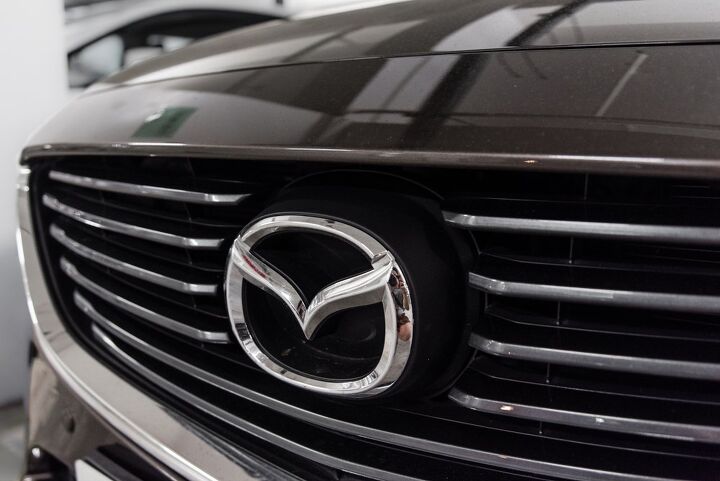


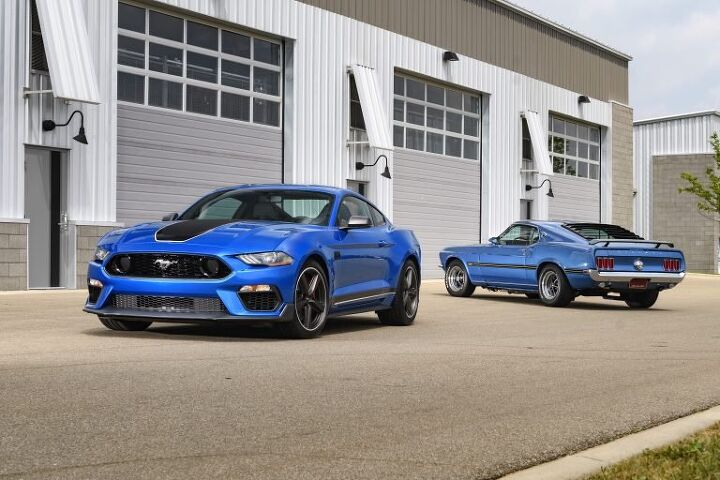

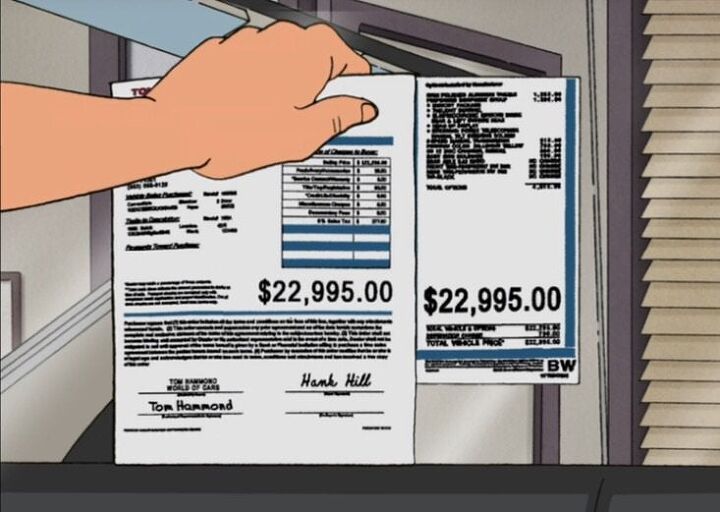
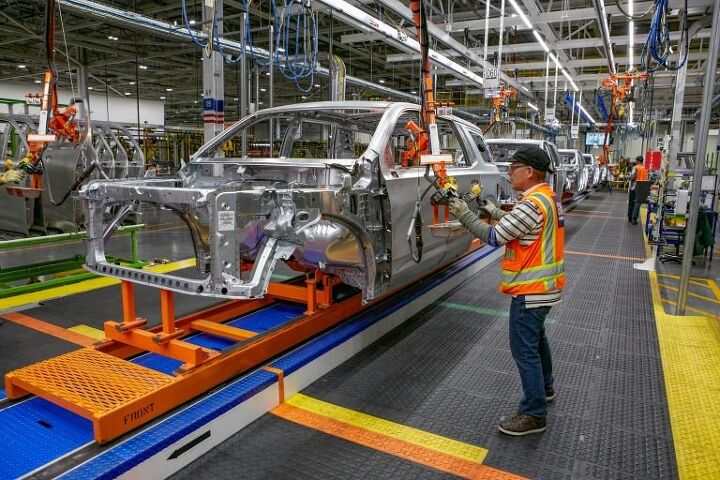
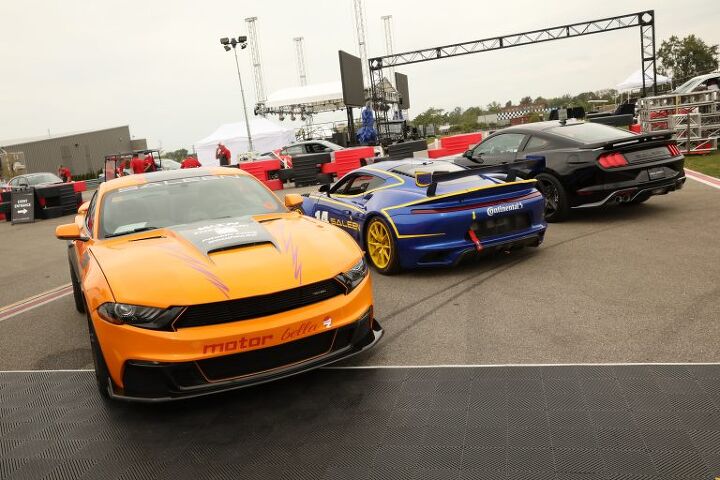



















Recent Comments